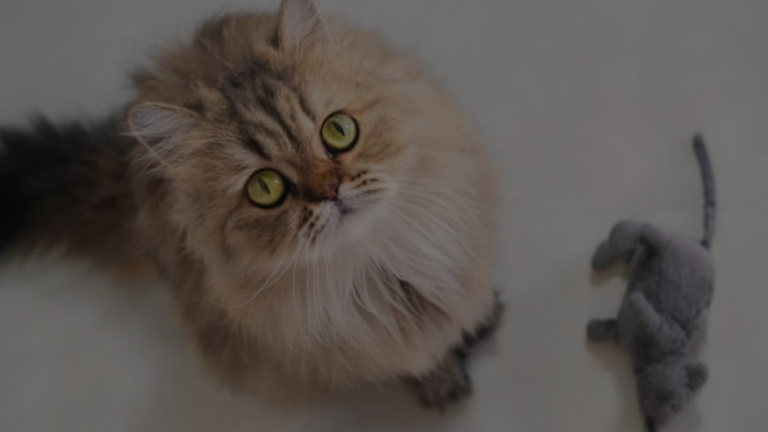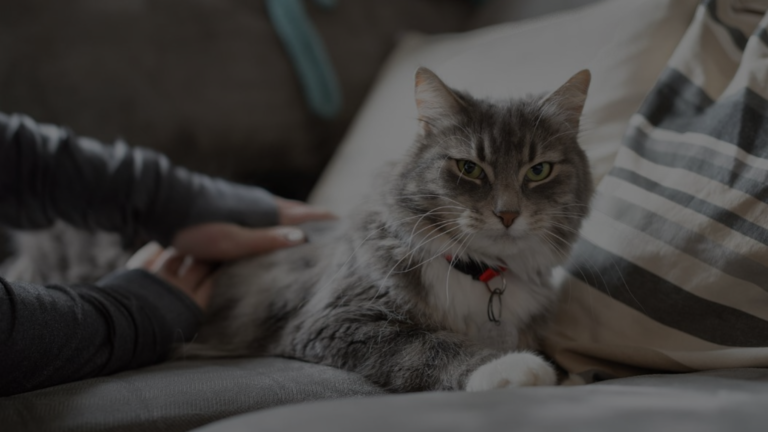Cats, our enigmatic companions, often exhibit behaviors that leave us puzzled. One such perplexing behavior that cat owners frequently inquire about is the mysterious groaning sound that accompanies their feline friends when they lie down. In this comprehensive guide, we’ll delve into the possible reasons behind why does my cat groan when she lays down, providing insights, solutions, and expert tips for a deeper understanding of your cat’s world.
Understanding Feline Communication
Cats communicate in subtle ways, and their vocalizations are a crucial part of expressing themselves. When a cat groans while lying down, it could be an indication of various emotions or physical conditions.
Comfort or Discomfort?
Cats often groan as they settle into a comfortable position. However, persistent groaning might signal discomfort or pain. Observe your cat’s body language to distinguish between contentment and potential issues.
Aging and Joint Health
As cats age, they may develop arthritis or joint issues. The groaning could be a response to discomfort while adjusting their posture. Providing a soft, warm bed and consulting with your veterinarian can help alleviate these issues.

Contentment Purr
Some cats emit low, rumbling sounds when content. This can be mistaken for groaning. Understanding your cat’s purring patterns will help discern between contentment and discomfort.
Environmental Factors
The surroundings play a significant role in a cat’s behavior. Environmental factors can contribute to groaning episodes.
Stress and Anxiety
Changes in the environment, such as a new pet or a move, can induce stress in cats. The groaning may be a manifestation of anxiety. Introduce changes gradually and create safe spaces for your cat to reduce stress.
Territory Marking
Cats use scent glands on their paws to mark their territory. The groaning may coincide with kneading, a behavior linked to marking. This is an instinct, but if excessive, consult your veterinarian.
Health Check-Up
When in doubt about your cat’s behavior, a visit to the vet is always a good idea.
Dental Issues
Dental problems can lead to discomfort. Cats may groan due to oral pain. Regular dental check-ups and proper dental care are essential for your cat’s overall well-being.
Respiratory Conditions
Respiratory issues, such as allergies or infections, can cause unusual sounds. If groaning is accompanied by coughing or wheezing, consult your vet promptly.
Digestive Discomfort
Gastrointestinal issues might cause discomfort. Observing your cat’s eating habits and consulting a vet for dietary advice can help address digestive concerns.
Creating a Comfortable Environment
Provide Cozy Bedding
Invest in soft, comfortable bedding to support your cat’s joints and overall comfort.
Interactive Play
Engage your cat in interactive play to reduce stress and provide mental stimulation.
Regular Vet Check-ups
Schedule routine vet check-ups to monitor your cat’s health and address any emerging issues promptly.
Feline Body Language: Deciphering the Groans
Understanding your cat’s body language is crucial in deciphering the meaning behind the groans. Cats use a combination of vocalizations and physical cues to convey their emotions.
Tail Position
Pay attention to your cat’s tail. A raised tail usually indicates a happy cat, while a puffy tail can indicate fear or aggression. Purring, when accompanied by specific tail movements, can give clues about your cat’s mood.

Ear Movements
Cats communicate with their ears. Forward-facing ears suggest curiosity or excitement, while flattened ears can indicate fear or stress. Connect the groans to your cat’s ear movements for a more accurate interpretation.
Resources & References
Recommended Articles
Recommended Video
My Cat is Stressed! What You Can Do!
In conjunction with this article, watch the video for additional insights into identifying and managing stress in your cat.
Unravel the mystery behind your cat’s purring, give them the care and understanding they deserve. By addressing potential issues and creating a supportive environment, you will strengthen the bond with your feline companion. Remember, every moan is a unique expression, and decoding it requires patience and love.
FAQs – Why Does My Cat Groan When She Lays Down
Why is my cat making a groaning noise?
Cats can groan for a variety of reasons, including pain, discomfort, or contentment. If your cat is groaning frequently, it’s important to take them to the vet to rule out any underlying medical conditions.
Why does my cat moan when she lays down?
Some cats moan when they lay down as a way of expressing contentment or relaxation. This is similar to how humans might sigh when they relax.
What are the 4 signs your cat is suffering?
Four signs that your cat is suffering include lethargy, loss of appetite, changes in litter box habits, and vocalizations like excessive meowing or groaning.
Why does my cat make noises when relaxing?
Cats sometimes make noises like trills or rumbles when they are relaxing. These noises are thought to be a way of self-soothing or communicating contentment.
Why does my cat make weird guttural noises?
Guttural noises, such as growls or hisses, are typically signs of aggression or fear in cats. If your cat is making these noises, it’s important to give them space and avoid interacting with them until they have calmed down.
Why does my cat moan when I pet her?
If your cat moans when you pet her, it could be a sign of pain or discomfort. However, it could also be a sign of contentment or pleasure. Pay attention to your cat’s body language to determine if they are enjoying the petting.







